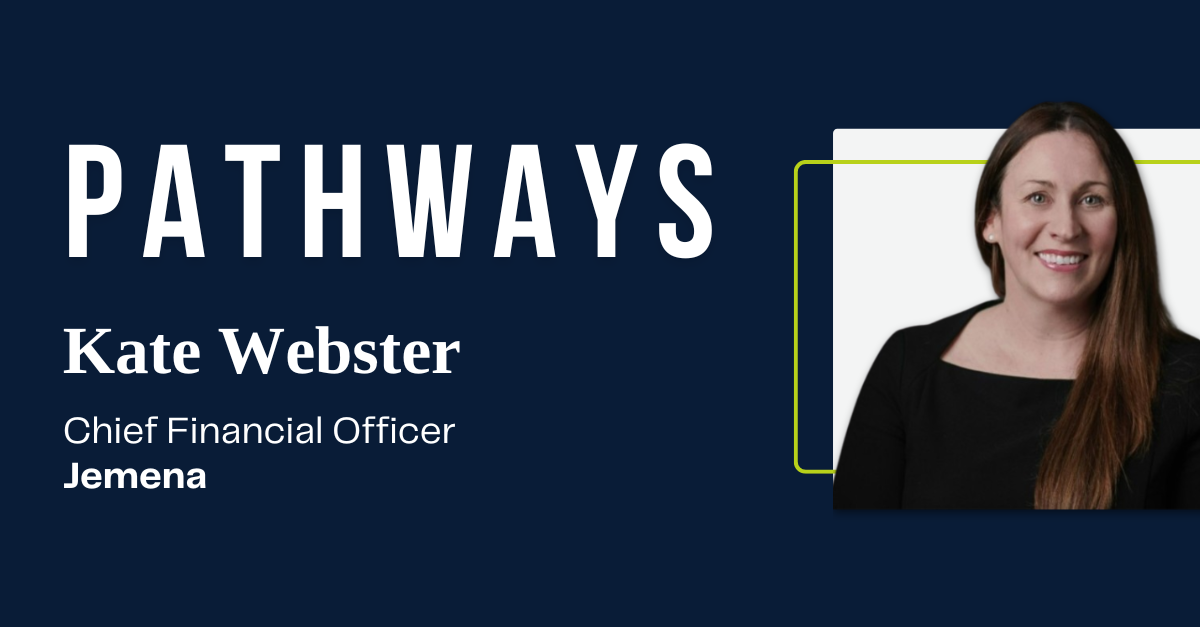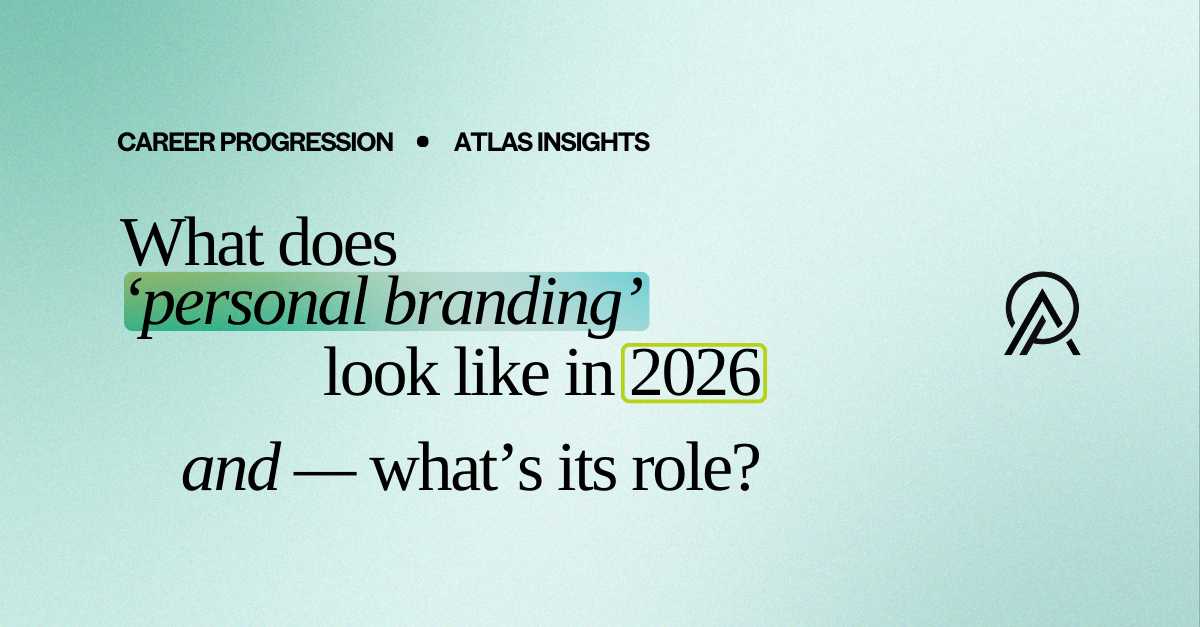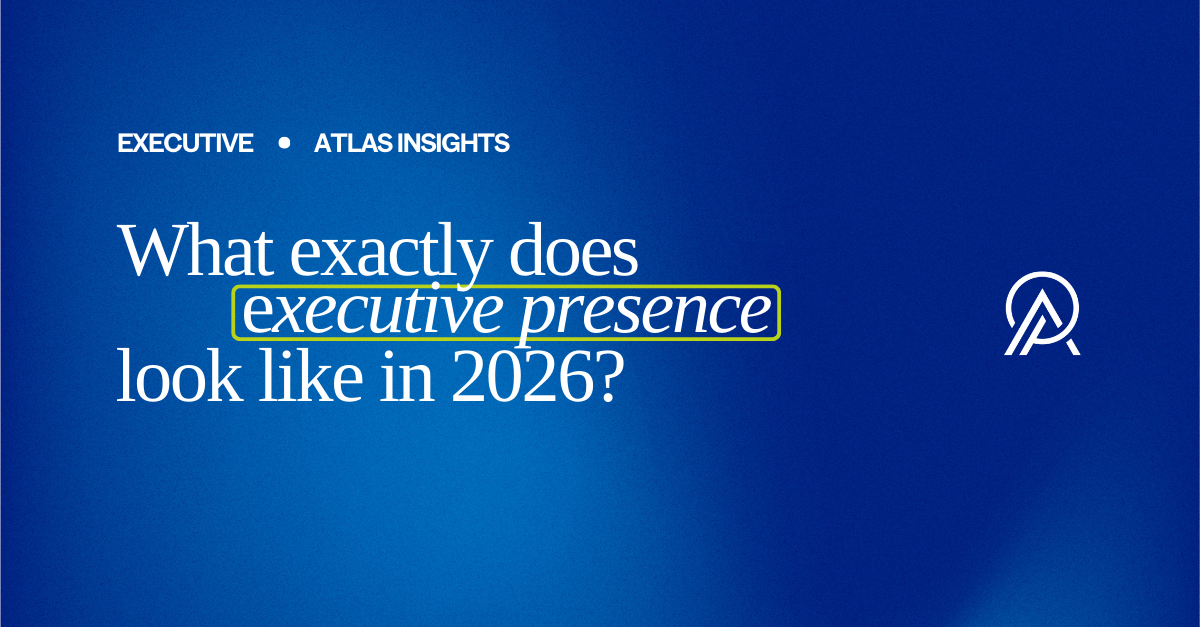
After an impressive career at the top for Australian Energy Operations, United Energy, CitiPower and Powercor — it’s no surprise that Kate Webster has been entrusted with the role of Group Chief Financial Officer for utilities powerhouse, Jemena.
Kate sat down with Craig Gorton, Atlas Director to talk about moving her career abroad, what professional development looks like for her as an executive and career shaping experiences.
Craig:
Hi everyone. Today we’re joined by Kate Webster, who is the CFO of Jemena. Thanks for joining us today, Kate. We’re going to start with a couple of questions, beginning with the early days of your career, then working through some of the challenges and learnings you’ve had over time. Let’s jump straight in. Talk us through your career to date, including those early days. What were your foundational learnings along the way?
Kate:
Thanks Craig, and thanks for having me. Straight out of university, I joined Deloitte to start my chartered accounting career. I had no idea what an auditor did at that point. I chose Deloitte because they were listed in the top 10 graduate employers, and I wanted to work for a good company that treated graduates well. That’s how I ended up in professional services.
As soon as you start in professional services in the UK, you begin training for your qualification. That chartered accountant qualification has really been the foundation of my career progression. In the UK, one of the final tests is a case study that brings together all the knowledge from the course. I still use that way of thinking today—looking broadly at a problem, identifying multiple stakeholders, and considering impacts beyond accounting, like tax and business reputation. That early training put me in a good position for the roles I’ve taken on since.
Craig:
Excellent. Thanks, Kate. I think they do such a good job—my career also started in audit, at BDO—and those foundational roles really set the tone for a career in finance. So tell me, how did you move into the utilities sector? What attracted you to it, and was it what you expected?
Kate:
You’ll see a pattern here—it happened by accident. I was in the Liverpool office in the UK when we won a major client, United Utilities. It was our first listed client, a gas, water, and electricity distribution business in the northwest of England. I was supposed to be working on a different job that got cancelled, so I was free, and got picked to work on this new client. I ended up spending about a third of my year on various engagements with them and quickly built up energy expertise.
Later, I moved to Melbourne with Deloitte on a two-year secondment. On my first day, one of the energy clients was going through a potential listing. I didn’t have a portfolio yet, so again, I was picked to work on that job—it was Powercor, the Spark transaction at the time. Since then, I’ve remained closely connected to the electricity distribution industry.
Craig:
Excellent. And what was the transition like, moving from the audit side into the business side?
Kate:
When I moved from audit to industry, I didn’t go straight into utilities—I went to Downer, which provides services to utilities. I was in the works division on the infrastructure side. It was a big learning curve, moving from working with multiple clients to month-end cycles and internal projects. But I really liked how I could bring value to the business and help deliver results from an accounting perspective.
After just over a year at Downer, one of my previous clients—Powercor—was doing a restructure. I got a tap on the shoulder and was encouraged to apply for a role. That’s how I ended up back in utilities.
Craig:
Sounds like you were always meant to be in utilities—it found you at every turn! We have something in common, both being expats from the northwest of England. Settling in a new country can come with professional challenges, especially when you don’t have an established network. What was your experience when you arrived in Melbourne?
Kate:
It was many years ago now, but when I arrived, Australia was in the process of implementing International Financial Reporting Standards. Since those were based on the UK standards I was already using, I had a natural advantage. That helped me build a strong reputation within Deloitte for technical financial accounting skills, and I quickly moved up the ranks.
There was a small expat community in the office at the time, but I found that in Melbourne—and I think it’s the same in Sydney—school relationships often carry through to professional life. That was a blocker for me. I had to work hard to build my own network by maintaining relationships with people I worked with over time as they moved into different roles or organisations.
Craig:
Yeah, I understand that. Coming from a similar background, you really have to work hard to earn your place. It’s not that others don’t, but there’s an extra challenge there. Talk me through the transition from your role at Powercor to stepping into a C-suite role. What was that like?
Kate:
All of a sudden, there’s a significant increase in responsibility. That was the biggest thing. I’ve been fortunate to work with an executive coach, initially meeting every six weeks, now every three months. It’s been incredibly helpful to have someone to bounce ideas off and navigate those first 12 months.
Craig:
What were the biggest challenges of stepping into the CFO role—both professionally and personally?
Kate:
Professionally, it was moving into a new energy segment—gas—where I didn’t have much experience. Distribution is similar to electricity, but gas pipelines are very different. So there was a big learning curve around the operations.
Personally, one challenge was that my predecessor moved into the MD role and was still in the building. That made it harder to establish myself as the new CFO, but we’ve moved past that, and it feels like my team now.
Another big challenge has been the travel. It’s a national business, and we also have international funding needs due to a large debt book. So there’s a lot of travel, which was a big adjustment. But before I started, we agreed as a family to adjust—my daughter makes her own lunches, and my husband does school drop-off. That family support has helped a lot.
Craig:
Absolutely—it’s never an independent decision. Shifting gears a bit, what academic or professional development courses would you recommend to future leaders aiming for C-suite roles?
Kate:
I did a program with Women in Leadership Australia, called Advanced Leadership, just before becoming CFO. It was a nine-month program with great content and a cohort of other women in similar positions from different industries. That’s also where I learned the value of having an executive coach. I highly recommend it for anyone aiming to move up the ranks.
Craig:
And with your executive coach, what kinds of things do you typically work on together?
Kate:
It depends on what’s happening at the time. For example, one session was about my thoughts on transforming the finance team and changing the operating model. She helped me build a framework for how to approach that.
Other sessions have focused on how I show up in the boardroom—my presence, how I navigate interactions, how I build gravitas. It’s been hugely valuable.
Craig:
It’s like holding up a mirror. I’ve had that experience as well—it helps so much with self-awareness and presence.
Kate:
Especially for women. Sometimes we enter the boardroom without owning the space. I’ve made it a point to greet each board member individually, shake hands, and establish that connection before sitting down. It’s a small thing, but it makes a big difference.
Craig:
Absolutely. Outside of coaching, have you had any mentors who’ve made a big impact on your career?
Kate:
Yes, although more of a reverse inspiration. Early in my career, I worked with a female partner in Deloitte’s Liverpool office. She was extremely tough and abrupt, likely because she felt she had to be in order to succeed in a male-dominated space. I remember thinking, “I never want to be like that.”
That experience shaped my guiding principle: stay authentic. Don’t change who you are just to get ahead.
Craig:
That’s such a good point—some of the best lessons come from seeing what not to do. Finally, what advice would you give to aspiring leaders at the mid-management level who want to get to the C-suite?
Kate:
Say yes to every opportunity you’re given—even if you think you can’t do it. You’ll figure it out. It’s about taking a leap of faith, because great things often come from it—you just don’t always know what at the time.
Craig:
Was there a sliding door moment for you?
Kate:
When I was at Powercor, I was constantly given extra responsibilities. I always said yes, and through that, I built my commercial knowledge and skill set. I developed skills I didn’t even realise I was building at the time—and I enjoyed it. So that’s the other piece: if you’re not enjoying it, it might be time to change.
Craig:
Great advice. Thank you, Kate—really appreciate your openness and insight today.
Kate:
Thanks, Craig.




